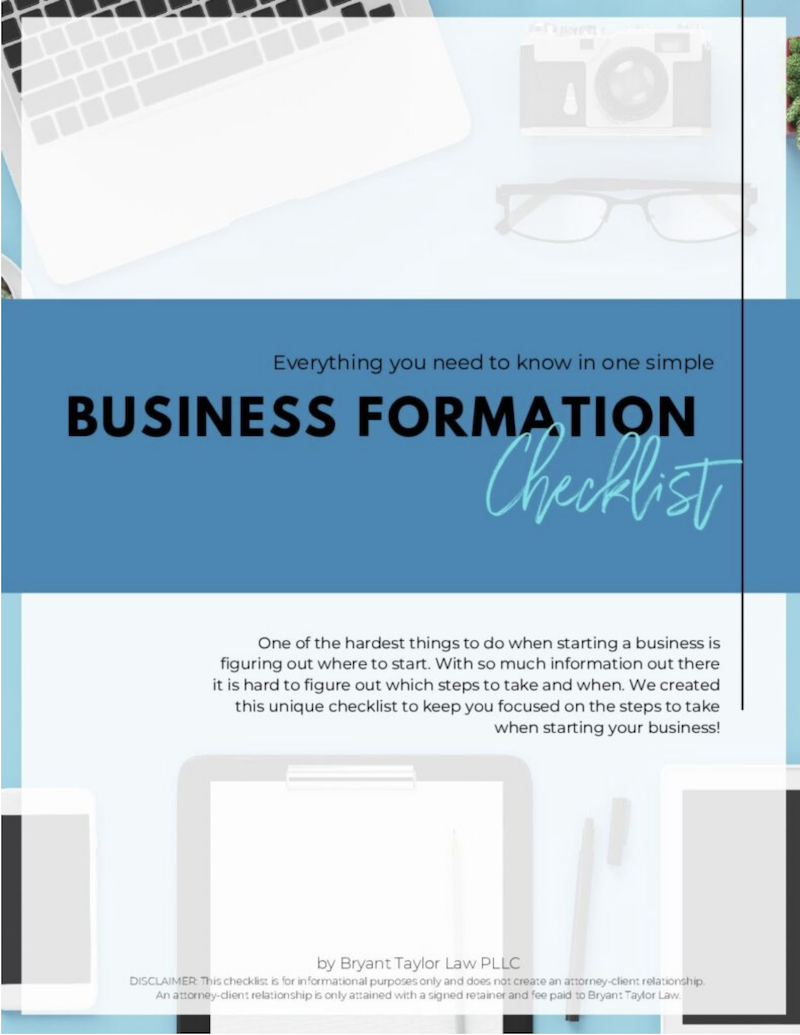Three simple tips can help you prevent (and resolve) a partnership dispute, which translates to money saved in your pocket. Going into business with a partner has a lot of benefits, but can also have cons. Typically, things start out great with your partner but inevitably a disagreement will arise. How you handle the disagreement is what’s most important.
Just like in your personal relationships, great communication and compromise can help prevent disputes with your partner. In your business, disputes can be a little more complicated but are often preventable. Here are three tips to prevent a partnership dispute.
1. Written Agreement
The most important thing you can do to prevent a partnership dispute is to draft an agreement when you first open your business. Depending upon which type of entity your business is, this can either be an operating agreement or a partnership agreement.
Your agreement should specify:
- Each partner’s role and responsibilities;
- Each partner’s ownership percentage;
- Capital contributions;
- How decisions within the company will be made;
- How disputes will be resolved, including a catch-all provision;
- Procedure for bringing on additional partners;
- Procedure for a partner leaving the company;
- Procedure for splitting up the business;
- How to buy-out or remove a partner from the business and under what circumstances that can be done.
It’s important to note that these are only a few of the important items that your agreement should address, and each category should be described with as much detail as possible. Because there are so many provisions of an agreement that you may not aware of, it is highly encouraged that you and your partner hire your own attorneys to negotiate on your behalf.
Many business owners make the mistake of not hiring an attorney to draft the agreement as a way to either save money or because they don’t believe they will ever have a dispute with their partner. This is a costly mistake and is imperative that you take the time to have a detailed agreement drafted for your business. Discussing potential problems with your business partner may be uncomfortable, but if it’s not a conversation you’re able to have with your business partner it may be a sign to re-think entering into a business relationship with that person.
A written agreement provides guidelines for you and your partner to operate the business. It eliminates confusion and unknowns that always arise during the course of the business relationship. When you’ve finalized the details of your agreement, ensure that all partners sign the agreement and have copies made for everyone.
At Bryant Taylor Law, we’ve handled plenty of partnership matters where our client assures that an agreement was signed but they never received a copy. Unfortunately, without a signed copy of the agreement it is nearly impossible to impose the rules that are set forth in the document and will likely mean that the default statutes will govern.
2. Discuss the Dispute
If and when a dispute does arise between yourself and your business partner, it is best to try and resolve it amongst yourselves before engaging an attorney or outside party. Take notes of what exactly is happening that you do not agree with, including dates, times, and people involved. Once you’ve narrowed down the issue, schedule a meeting with your business partner to rationally discuss the problems you are having with the relationship.
Before your meeting, write out all of the issues you want to discuss and potential solutions to those issues. Set clear objectives for what you want to accomplish during your meeting. This way, if tension arises during your meeting you can refer back to your notes and focus on finding a solution, rather than the problems.
Remember, the meeting is to resolve an issue with the partner’s behavior or how the business is being run. The focus should be on what’s best for the company, not on your egos. Oftentimes partners take the issues discussed personally and this prohibits their ability to think rationally and act in the best interest of the business.
Lastly, make sure that you schedule this meeting as soon as you notice that there is an issue. Resolving problems immediately prevents them from festering and becoming worse over time.
3. Hire an Attorney
Sometimes issues have lingered too long and it’s difficult for the partners to separate business from personal. It’s these situations that warrant hiring an attorney to mediate the issue for you.
Hiring an attorney sooner rather than later is critical to getting the upper hand in resolving your partnership dispute. By waiting to hire an attorney once it is clear that you cannot resolve your differences on your own, you may be giving your partner the opportunity to begin ousting you from the business. An attorney will be able to guide you on what your rights and obligations are within the company and provide you invaluable strategies for achieving your desired result.
Similarly, failing to abide by the provisions in your written agreement may expose you to risks and liability if litigation ensues. You may be tempted to retaliate against your partner by poaching customers or changing important passwords, but this will likely create additional problems and may subject you to even more liability in the long run. If you find that your partner is the one poaching clients or ruining the company’s goodwill, an attorney can assist you in obtaining an injunction to prevent your partner from engaging in this behavior.
Most importantly, be proactive in whichever approach you decide to take. At Bryant Taylor Law, we offer a complimentary telephonic consultation to guide you on how to proceed with resolving any partnership disputes. Click here to contact us today.
ventus
Latest posts by ventus (see all)
- The Role of a Business Attorney in Estate Planning - October 13, 2022




